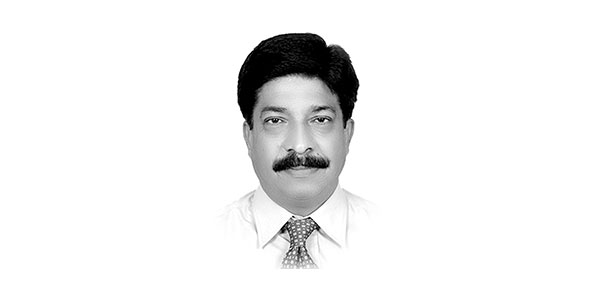Threats to journalism from populism
A few days back, in their first live debate ahead of the October presidential election in Brazil, though all the candidates were indulged in extremely heated and offensive oratory, the populist President Jair Bolsonaro literally crossed all the redlines while answering the questions of the journalists.
“I think you go to sleep thinking about me. You have a crush on me,” Bolsonaro told Vera Magalhães after she asked him about Brazil’s Covid-19 vaccination rate.
“You are a disgrace to journalism in Brazil,” he further spewed acid. Magalhães, a columnist working for Jornal O Globo, in contrast, later reacted in a rather sombre and professional tone that Bolsonaro’s attitude was “absolutely out of control, unnecessary, and… harmful to himself.
” She said she believed Bolsonaro “doesn’t like to be questioned by women. ” Bolsonaro’s insulting comments to Magalhães came after he faced criticism for his attitude towards women.
The far-right populist defended his government’s support for laws in favour of women and claimed “a large part of women in Brazil love me” because he opposes legalizing drugs.
This episode sounds quite familiar. On August 27, when addressing a gathering in Jhelum, former Prime Minister Imran Khan also snobbishly thrashed all the journalists who criticize him or ask him “difficult” questions.
He referred to all those journalists as “lifafay and zameer farosh” who were advising him to temporarily pause his protest campaign because of the on-going humanitarian catastrophe caused by devastating floods in the country.
Similarly, the notorious incident of Donald Trump’s outrage against CNN’s Jim Acosta is still alive in the memories -Trump’s morning post-midterms presser was deliberately converted into an historic White House fracas when Acosta poked the presidential bear with his line of questioning about Trump’s Caravan Invasion rally rhetoric.
“That’s enough!Put down the mic!” Trump shouted.“CNN should be ashamed of itself for having you working for them.You are a rude, terrible person.
You should not be working for CNN.The way you treat Sarah Huckabee is horrible.The way you treat other people is horrible!
” Trump hissed at Acosta. In recent years, a long string of populist leaders has suddenly popped up on the global political spectrum – Donald Trump, Imran Khan, Boris Johnson, Narendra Modi, Macron and Viktor Orban to name a few – with a lot in common, particularly their theatrical demeanor and extreme disdain for the legacy media and professional journalists.
This wave of radicalized populism has produced numerous such episodes where the populist politicians have directly and aggressively bullied and slighted the journalists – and particularly female journalists – who happen to ask them any pricking questions or challenge their narratives.
This aggressive anti-journalist trend, arising out of their intrinsic fear of being exposed and challenged publicly, is a relatively new phenomenon that traces its roots to the introduction of social media as one of the most powerful propaganda tools in this new era of emerging technologies.
The level at which Journalism is being challenged and threatened now is certainly unprecedented in its history.
The content and authority of traditional news outlets are being questioned, and their monopoly on people’s attention is being increasingly diluted due to the new social media platforms and communicators, including Twitter, Facebook, and other chatting apps.
The emergence of populist politics is yet a horrendous challenge, manifested in some cases by players hostile to journalists and even to the idea of press freedom.
Factually speaking, though still obscure for their own personal deficiencies and gapes. The rise of populist leaders can be mainly attributed to the lingering economic insecurity and cultural disruption—the gravest economic recession in nearly a century coupled with a widening gap in wealth within and between countries and increasing numbers of migrants and refugees across the globe.
This populist trend is also a by-product of swift and speedy globalization. Unlike other political trends in vogue in modern human history, populism does not have a mother ideology – liberalism, socialism, authoritarianism or something else.
It may emerge from any side of the political spectrum, but it has three characteristic features: the people, anti-elitism and out-group exclusion.
“The people” is the fulcrum of this mindset, which provides the required momentum to its two other features.
The mantra of “corrupt elite” is the most powerful rhetoric that provides the basic foundation to its “anti-elite” theme and it easily seeps into the cracks of the society created by economic disparity – particularly the middle and lower middle classes are the main target audience of this feature.
The third feature is “out-group exclusion” which implies the delegitimizing of a particular group or groups, such as immigrants or ethnic and religious minorities, for example, Donald Trump’s attempts to stringent anti-immigrant policies and Modi’s NRC campaign against Bengali Muslim immigrants in Assam.
Essential components of populist communication are the anti-elite and anti-establishment rhetoric, typically voiced on behalf of “the people.
”Populism, feeling threatened by independent and rational voices, always poses a serious challenge to liberal democracy.
By exploiting the electoral mandate to undermine core institutions like the courts or the news media, populism creates a political tribalism and cultism that inflames divisions, blunts civil discourse and eschews political compromise.
One of the interesting aspects of populism is to give voice to groups of citizens who feel the elite are inattentive to their interests.
While using legitimate issues that are being underplayed by mainstream politics, populism mostly mobilizes people who have not been politically involved.
—To be continued. —The writer is political analyst, based in Karachi.










